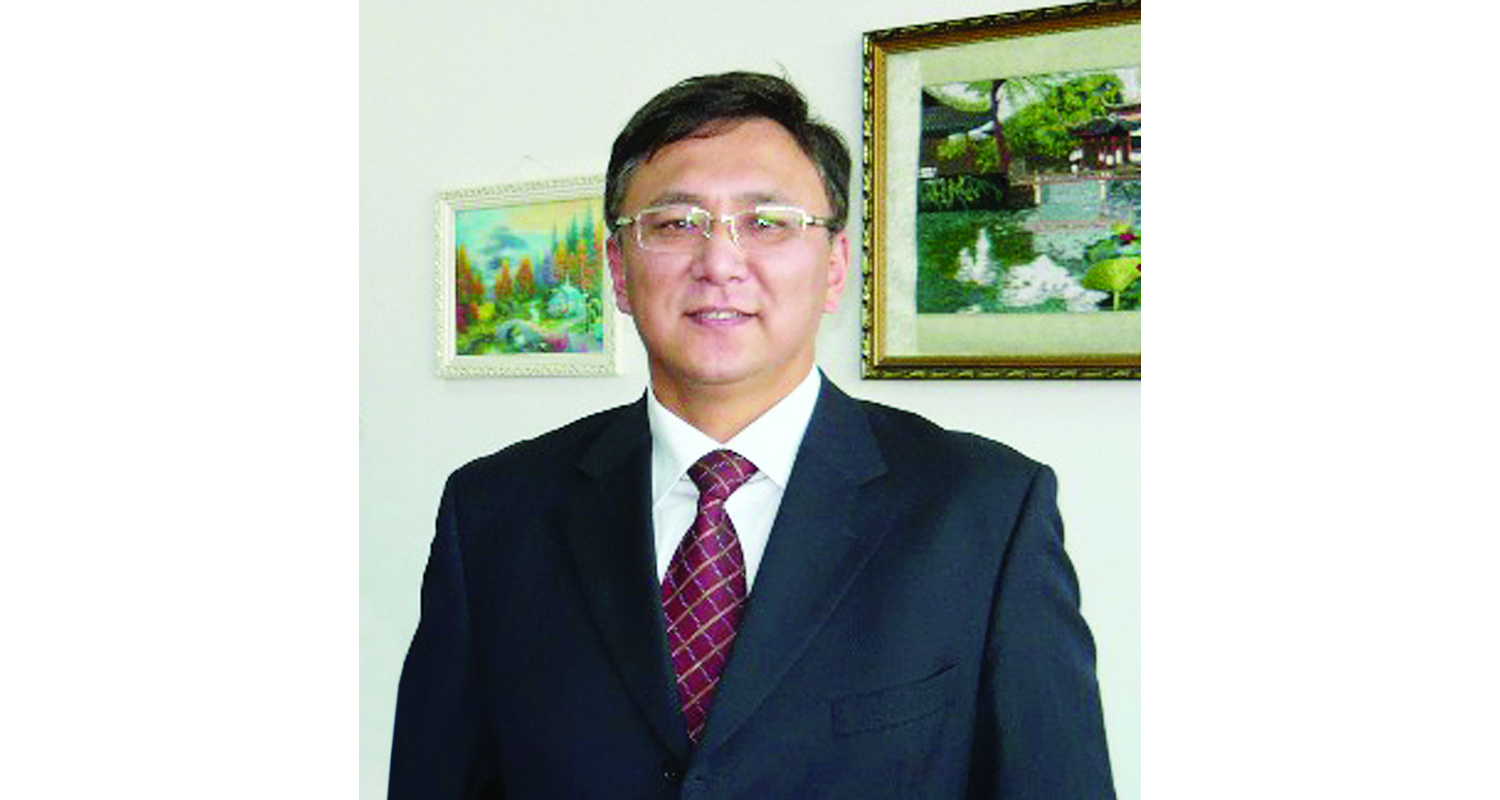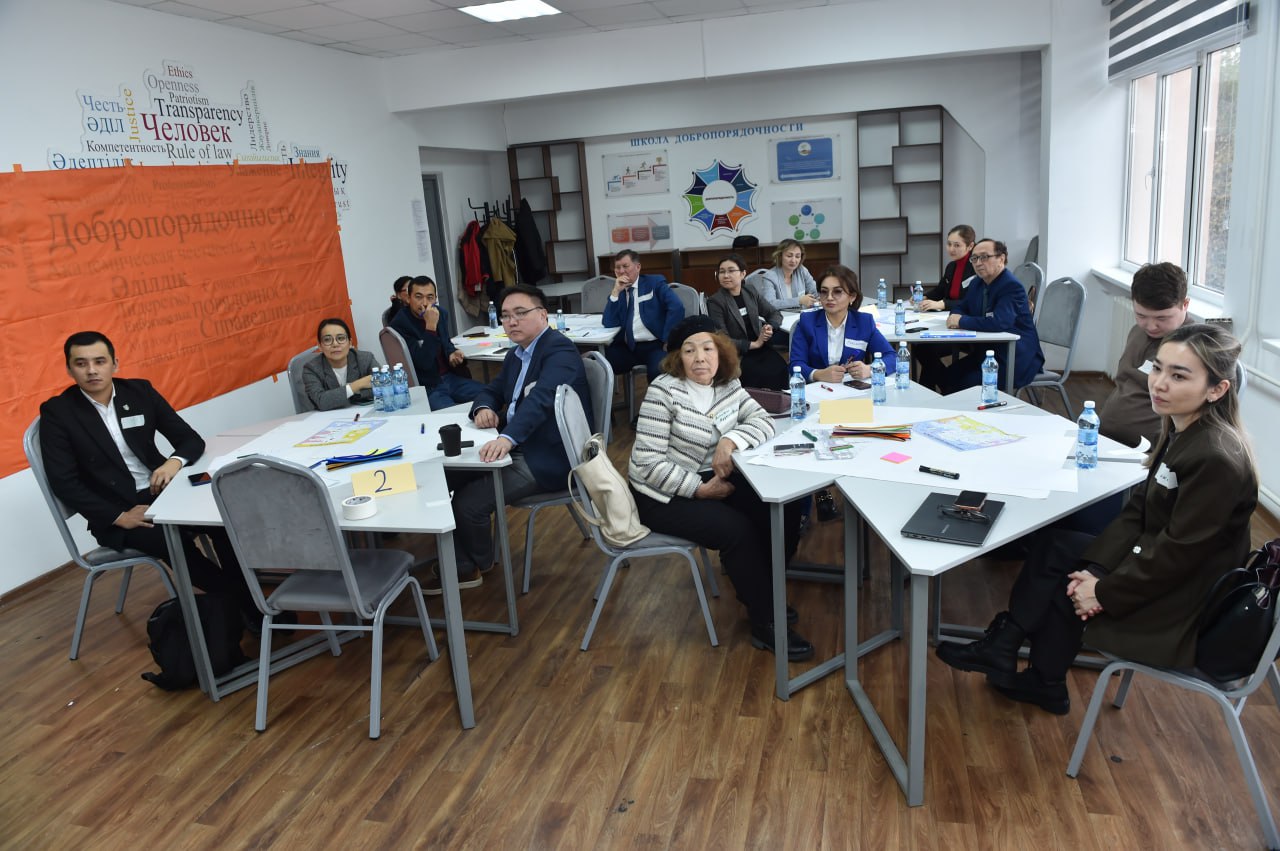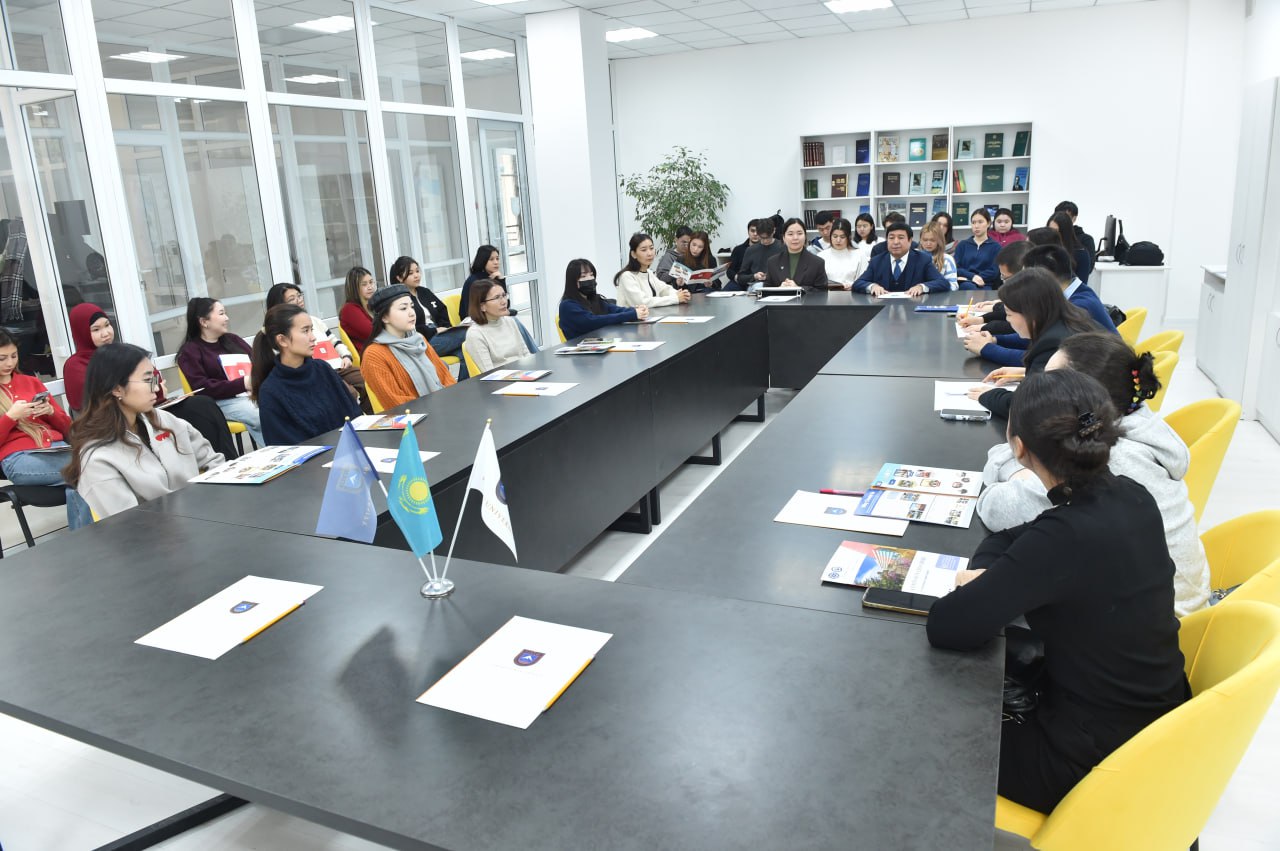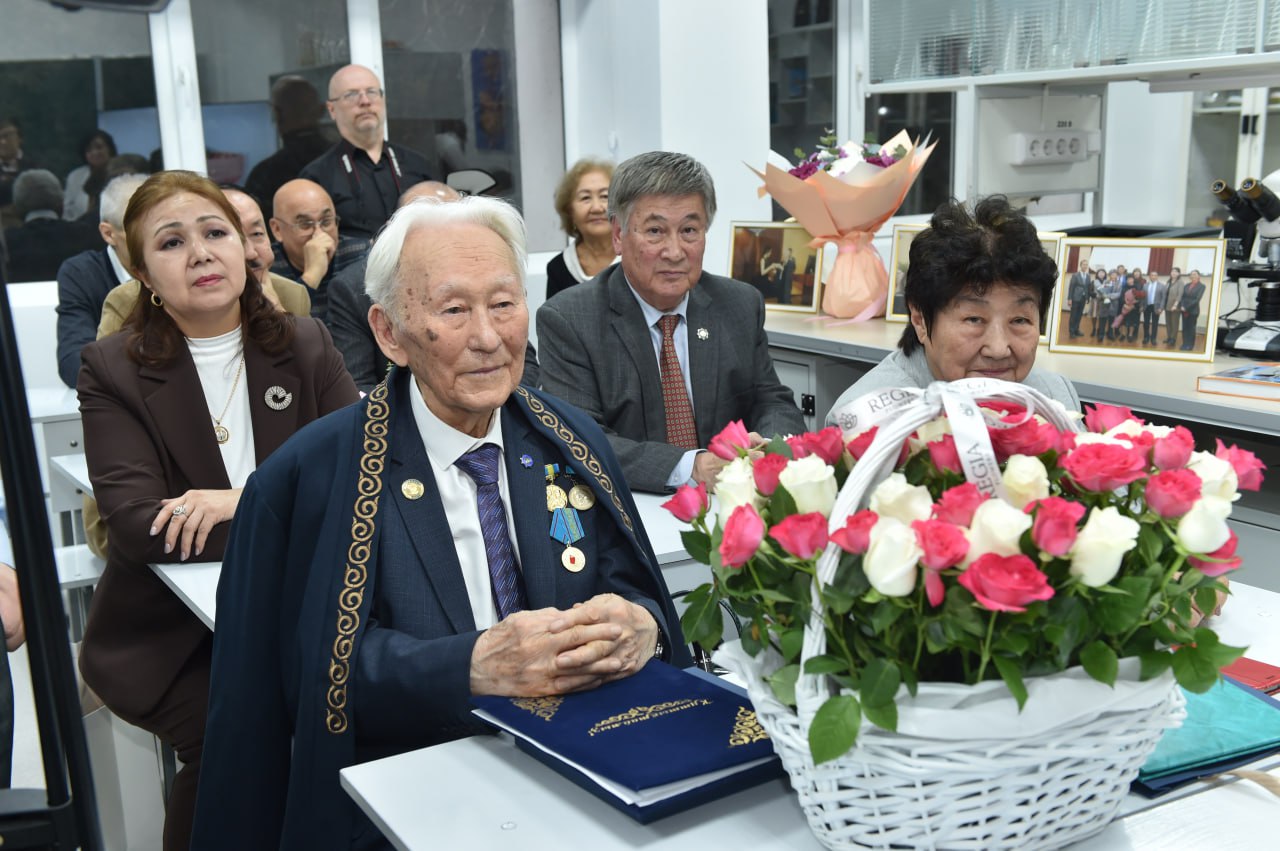
The Faculty of Oriental Studies, since its establishment in 1989, has been the largest educational and research center, occupying a leading position in the university system for the training of highly qualified specialists in oriental studies – philologists, historians, cultural experts, and political scientists. The faculty trains specialists in all countries and regions of the Middle East, Far East, and Asia, with active proficiency in several Eastern and Western languages.
It is no secret that the Faculty of Oriental Studies is a true "forge" for the preparation of civil servants working in the diplomatic service. Among its graduates are government officials holding high positions in diplomatic services: extraordinary and plenipotentiary ambassadors, consuls, and other senior employees of diplomatic missions, international organizations, and consular institutions.
As part of the celebration of the 90th anniversary of Al-Farabi Kazakh National University and the 35th anniversary of the Faculty of Oriental Studies, the author of these lines interviewed one of the distinguished graduates of the faculty, Serik Naryssov – holder of the "Parasat" order, First Secretary of the Ministry of Foreign Affairs of the Republic of Kazakhstan, former Chairman of the Shanghai Co-operation Organization, and former personal translator of the country's President K.J. Tokayev and former President N.A. Nazarbayev.
This interview presents a conversation between two graduates of the Faculty of Oriental Studies on everything related to oriental studies, whether it be politics, culture, education, or daily life.
– Serik, could you tell us how you came to the desire to study the Chinese language, and China in general? When you were entering KazGU, you had a choice between Arabic, Persian, and Chinese. Why did you choose Chinese?
– I'll start by saying that since school years, I read a lot of literature of different genres. Somewhere in the 6th or 7th grade, I read books on historical topics by A. Mina and R. Petrov "Black Irtysh" and K. Zhummadilov "Last Nomads". The first book describes events of the 1940s that directly affected the fate of a part of the Kazakh tribe of the Keray living in Xinjiang, particularly the struggle for the freedom of their people by Osban batyr. The second book is about the return of part of the Kazakh diaspora from China to their historical homeland in Kazakhstan in the early 1960s. These books belong to the genre of historical chronicles, but although they are works of fiction, after reading them, I developed a deep interest in Xinjiang – this vast border territory with an ambiguous and tragic historical fate. Over time, my interest in the Xinjiang Uygur Autonomous Region grew into an interest in China as a whole, and this country captivated me more and more. Additionally, I had an early interest in history and geography. These elements led me to enroll in 1988 at the Faculty of History at KazGU, specializing in the "History of the Communist Party of the Soviet Union". At that time, there were no educational institutions in Kazakhstan with specializations related to the language and history of China.
But as the saying goes, "what you seek in the sky might be on the ground" and fate gave me a chance to find my path – in 1989, at the newly opened Faculty of Oriental Studies at KazGU, there was a department of Chinese language and history. I gladly enrolled. That's briefly the story of my choice.
I would also like to add that I am interested in two other languages taught at our faculty: Persian – the language of a magnificent medieval culture and poetry, which I dream of mastering, and Arabic – which is closer to me as a moderate follower of Islam. By the way, I learned the Arabic script of the Kazakh language, "tote zhazu" in my school years, and I can proudly say that I was the only one in our village who wrote for the newspaper "Bizdin Otan" which was printed in Arabic script in Almaty for the overseas Kazakh audience. It was interesting to see how my fellow villagers would come to our home to look at this "miracle" of periodical press with unfamiliar but dear-to-the-heart Arabic letters. Unfortunately, that newspaper disappeared along with the Soviet Union.
– Serik, you are rightfully considered one of the leading specialists in the field of domestic Sinology. You have published works in Chinese, translated the works of prominent diplomats. In fact, with your experience, you have proven that "The road is conquered by the walking!". Tell me, do you have any kind of magical means that turned you into an outstanding sinologist, or is this one of those cases when it is said, "Genius is one percent inspiration and ninety-nine percent perspiration". In other words, please tell us about your experience of learning Chinese and what would you say to those who claim that it is impossible to master Chinese perfectly?
– I believe there is nothing impossible for a person, as long as fate doesn't decide otherwise. As you know, studying the Chinese language, due to the complexity of the hieroglyphic writing system, requires exceptional perseverance and hard work. It’s one thing to learn spoken Chinese without literacy, and another to learn characters and practice correct spelling. This involves certain difficulties. Like many of my classmates, I spent a lot of time poring over textbooks, but I didn’t forget about leisure either. If you remember, during my student years, on the wall of my dorm room, there was a famous quote by Sun Yat-sen: "革命尚未成功,同志仍需努力" ("The revolution has not yet succeeded, comrades still need to work hard"), which, when translated, means: "Comrades must continue to fight until the revolution triumphs" This was, in a way, my guiding principle during those years. It helped me through various stages of life.
– You lived and worked in China, studying and understanding both its external and internal characteristics. What do you think we should, first of all, know about China?
– I have partly touched on this topic, but I can add that China is an important political and economic partner for our country. It has a rapidly growing economy, is a good neighbor with a shared border of more than 1,700 km, and is one of the largest investors in Kazakhstan's economy. It is a country with a millennia-old history and culture. We look at the future of Kazakhstan-China relations with great optimism. At the same time, we absolutely don’t need to be Sinophiles, but there is no need to be Sinophobes either. We must build multifaceted relations with China, fully taking into account our interests and benefits. We must remember – if we are weak, then all are our enemies, if we are strong, then all are our friends.
– Serik, you were a personal translator for the Presidents of the country, K.J. Tokayev and former President N.A. Nazarbayev, for a long time. Could you please share your experience?
– I must admit, being a translator for the highest leadership is not an easy task. All my colleagues who have served or are serving in this field will confirm this. I want to highlight the most important thing – the great human charm of our Presidents, their deep wisdom, and their highest level of foresight in solving issues related to intergovernmental policy. Our leaders are great diplomats of their era, subtle experts on human souls. Despite the fact that sometimes very complex issues were brought to the table, their modesty and charm, simplicity in communication, and genuine respect for the interlocutor, as well as constructive business approach, always and initially set the negotiating partners in a very positive mood.
During negotiations, our Presidents always provide their translator with full support, often making pauses, immediately sensing when the translation of certain terms is difficult. There were times when the heads of state would often pick synonyms for words in their speech, giving me the opportunity to provide a more accurate translation. I should note that this really helps and inspires, and I don’t know any presidential translators around the world who can boast of having such attentive leaders. Perhaps there are some, but I haven’t met them yet.
– Please tell us about your experience in diplomatic service. What advice would you give to students and young professionals aspiring to become diplomats?
– Overall, diplomatic service is an honorable but very responsible job. It has many interesting aspects, but there are also many challenges in this field.
A diplomat must have a broad worldview, a high level of culture, impeccable behavior, be composed and neat, have a good knowledge of the language and legal system of the host country, show respect for local customs and traditions, and know in detail the issues of bilateral relations.
A diplomat must also strictly adhere to diplomatic etiquette, job instructions, and within their authority, consistently defend the interests of their country. These are the basic skills required of a diplomat.
Indeed, there are no former diplomats, especially former ambassadors. Diplomatic envoys, after retirement, carry the honorary status of people who represented their country abroad and have a number of moral obligations, which include following the unwritten rules of diplomacy. These rules are simple and include, but are not limited to, refraining from disparaging and unflattering comments and harsh words about the countries where they represented their homeland, unless, of course, these countries are at war. It is also important to know that diplomatic rank is granted for life, which itself imposes considerable responsibility and requires special tact and politeness.
– Finally, Serik, you already know that this year our beloved alma mater, Al-Farabi Kazakh National University, turns 90, and our cherished Faculty of Oriental Studies celebrates 35 years since its formation. What would you like to wish for your alma mater?
– Fatima, first of all, I want to thank you for taking the time to talk with me. Having visited our faculty more than once, I have seen that, in addition to the academic workload, you also manage to accomplish a tremendous amount of work! You publish articles in high-ranking journals from Scopus, Web of Science, publish several monographs and textbooks every year, hold scientific conferences and seminars of national and international scale, and engage in career guidance work by visiting schools and colleges. I also know that you are involved in the translation process at all international events held at KazNU. I marvel at how you manage to do all of this! I believe that to work this much and so productively, one must truly love their profession and be passionate about their work. Therefore, in this anniversary year, I wish all the professors of our beloved alma mater good health, creative success, and to never lose this healthy passion. The Faculty of Oriental Studies at KazNU is an important research center, a flagship in training the best specialists in Oriental studies. The East is a delicate matter! I wish that the faculty of Oriental Studies continues to develop in step with the times, preserving the best traditions and high standards of education and research. Happy anniversary!
Interviewed by
Fatimabibi DAULET,
Professor of the Department of Chiese Studies,
Faculty of Oriental Studies
Other news


